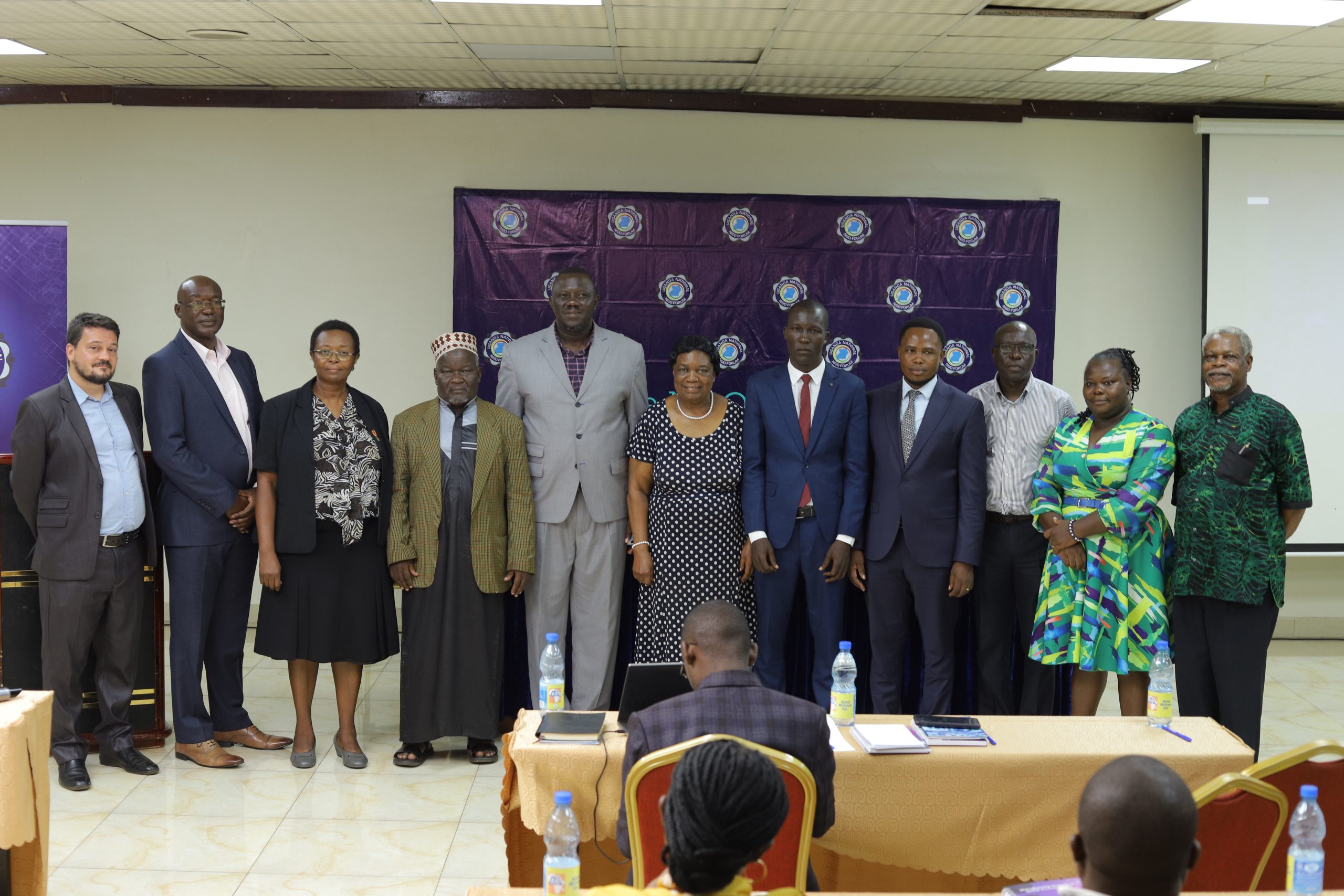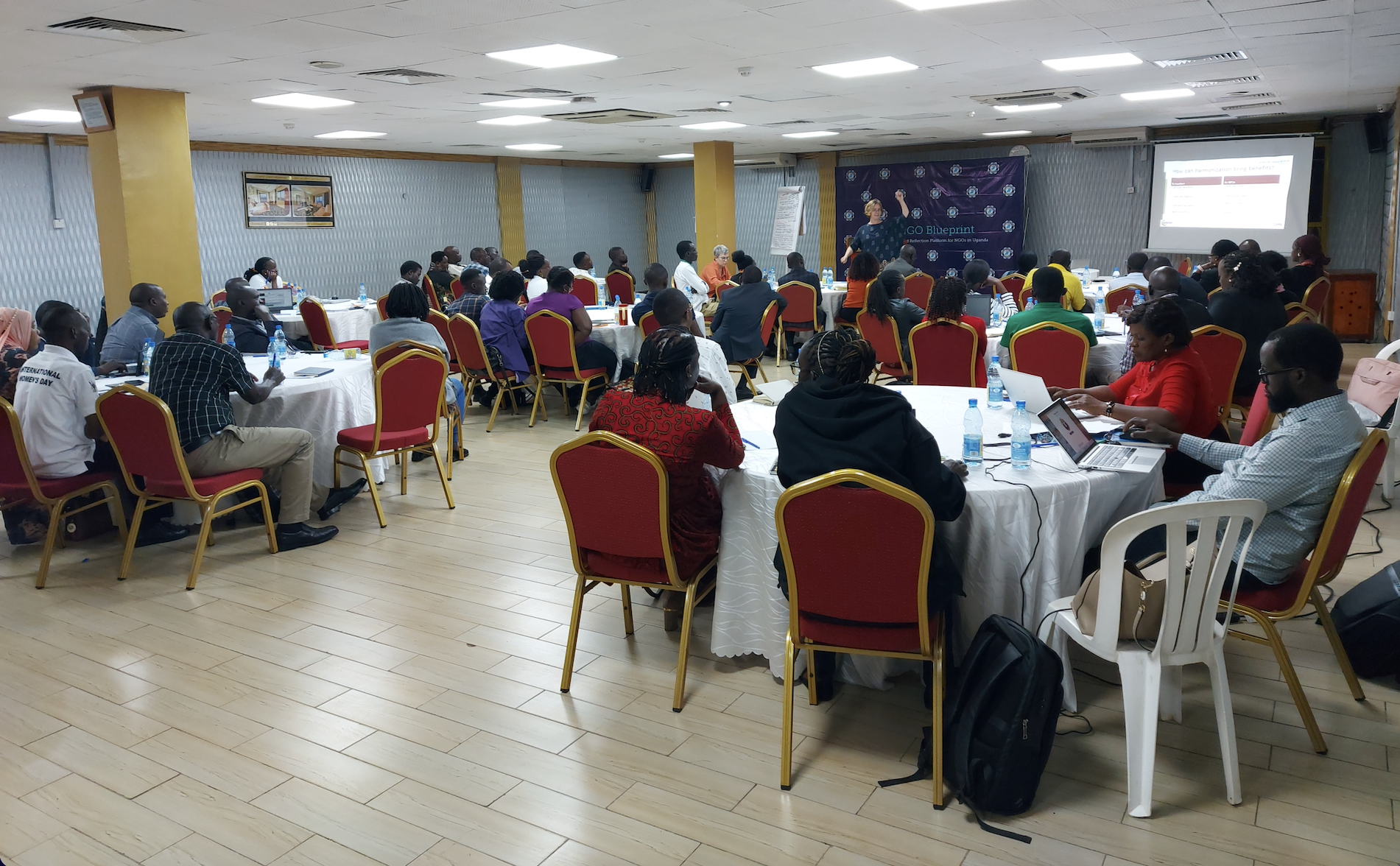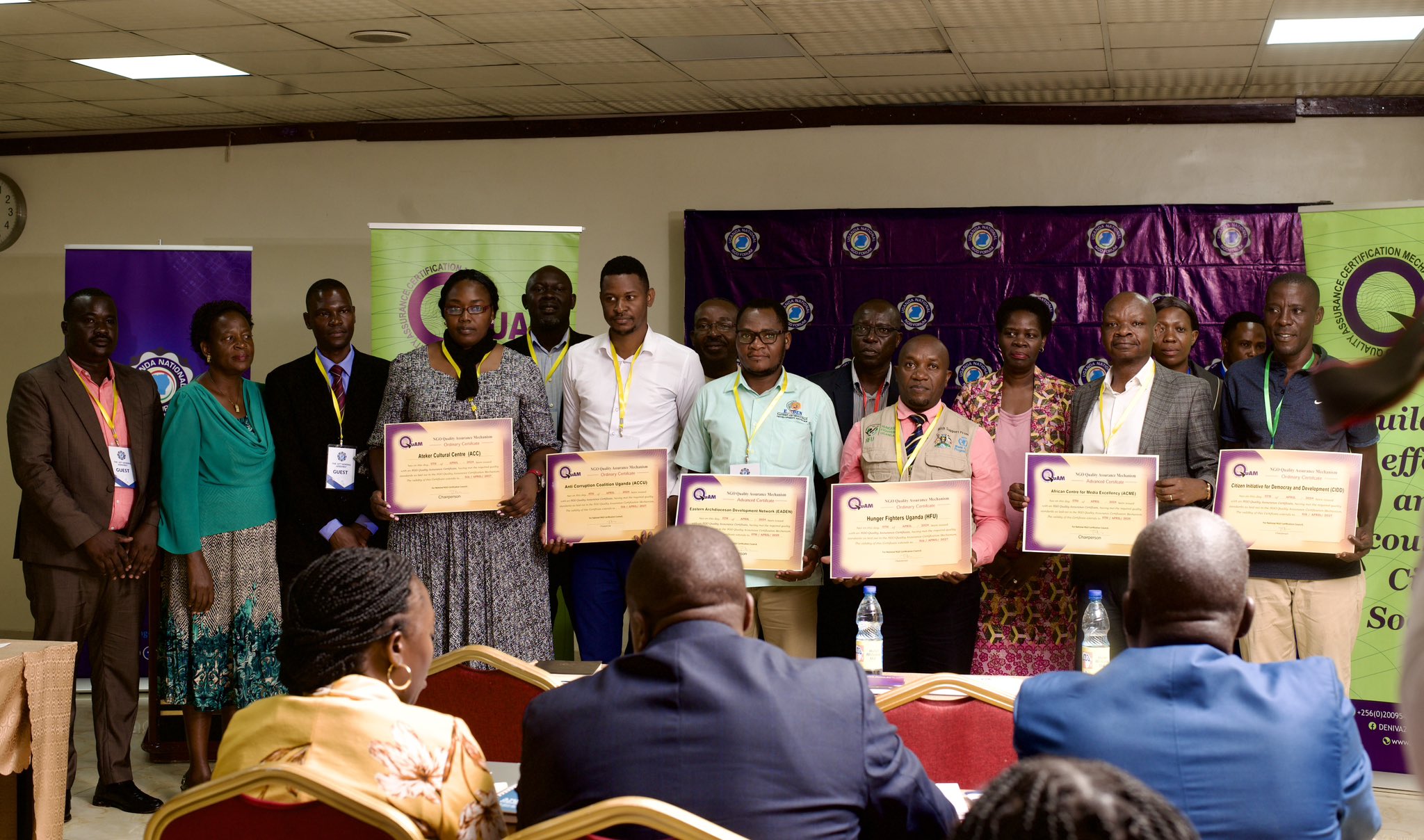QuAM – An Initiative for Self-Regulation for CSOs
The Quality Assurance Mechanism (QuAM) is a self regulation mechanism developed and administered by and for NGOs in Uganda to generally accepted standards and ethical conduct. Launched in 2006, QuAM sets principles and standards of behavior for responsible practice to protect the credibility and integrity of certified NGOs and their networks in Uganda.
Before then, NGOs in Uganda operated without any form of guiding principles and most times faced criticism from state authorities for not being accountable. Therefore, it was deemed imperative that NGOs, as a watch-dog over the state’s policies and programmes, devise a mechanism to ensure accountability and streamline the internal governance within NGOs. This initiative, spearheaded by DENIVA and the UNNGOF, resulted in the birth of the NGO Assurance Certification Mechanism (QuAM). Currently, over 140 NGOs have complied with the QuAM process and have been awarded certificates (provisional, standard and advanced certificates).
As promoters of QuAM, both organizations have been at the forefront of impressing upon their member organizations to submit to the QuAM process. As a way of spreading out the message about the purpose and benefits of QuAM, it was important that board members of the DENIVA, UNNGOF and QuAM council understand, appreciate and support the QuAM. Since board members of organizations serve for particular terms, it is important that they are kept informed of what an organization does and what programmes it is involved in.
In that regard, a workshop was organized to orient the board members of UNNGOF, DENIVA and the newly appointed Council on QuAM, and to be ambassadors of the initiative to wider society. This event took place at Source of the Nile Hotel Jinja and key outcomes from the workshop included: the need to expand the base for QuAM promoters; identify regional hosts for QuAM; focus on the quality of the whole QuAM process and the quality improvement of QuAMed NGOs; QuAm process should be of integrity, developing clear terms of references for QuAM hosts; and a four person-committee was set up to review the QuAM strategic plan 2016-2020.
The rationale behind QuAM is that the NGO sector itself should be actively engaged in promoting particular set of values and norms as part of maintaining a public reputation for professionalism and high ethical standard. With government enacting a new law (NGO Act 2016), the only way for the NGOs to protect their credibility is by subjecting themselves to self regulation and thus QuAM is the way to go.
Story By Robert Ninyesiga




